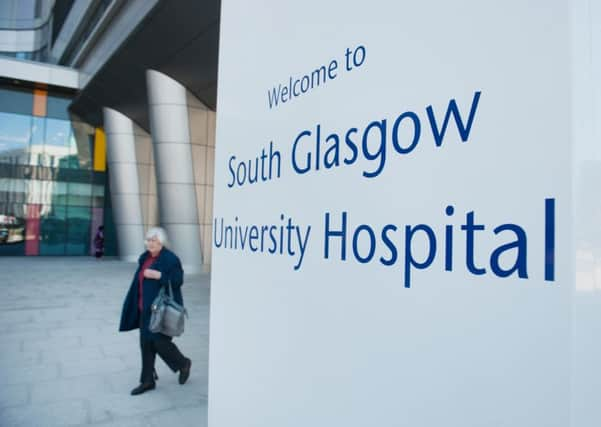Scotland to be home to pioneering medical centre


The new facility will be part of a UK-wide network aimed at developing innovative therapies that can be tailored to a patient’s particular illness.
The centre will be based at the University of Glasgow, which has been awarded £3.4 million from the Medical Research Council and the Engineering and Physical Sciences Research Council to set up the new Molecular Pathology Node.
Advertisement
Hide AdAdvertisement
Hide AdDiseases are usually defined by a common set of signs and symptoms as well as diagnostic tests. However, not everyone classified with the same condition will experience the same rate of progression or respond equally well to the same drugs.
Precision medicine is an emerging approach that takes account of individual variations in genes, lifestyle and environment rather than relying on one-size-fits-all therapies.
By classifying and understanding molecular differences between people with a shared condition, doctors hope to provide more accurate diagnoses, better understand how conditions will progress and pinpoint the most effective treatments.
While significant advances in this field have been made for certain cancers, the practice is not currently employed for most diseases.
Experts believe the method can offer significant health and economic benefits.
The Glasgow hub will bring together experts in laboratory medicine, including pathology, and informatics. It is to be based in the purpose-built Laboratory Medicine Building at the Queen Elizabeth University Hospital.
Funding for six centres across the UK was announced, with Glasgow receiving the largest single award.
Professor Anna Dominiczak, the university’s vice-principal and head of the College of Medical, Veterinary and Life Sciences, said: “The goal of precision medicine is to provide the right treatment, to the right patient, at the right time, for the right cost and the right outcome.
Advertisement
Hide AdAdvertisement
Hide Ad“We now understand more about abnormalities in DNA and other molecules which occur in disease.
“This so-called ‘molecular pathology’ is revealing significant variation in diseases which by standard classifications, for example by a pathologist using a microscope, have been indistinguishable.”
The new Scottish facility will integrate with large-scale initiatives such as the Stratified Medicine Scotland Innovation Centre, the Precision Medicine Catapult, the Scottish Genomes Partnership and the International Cancer Genome Consortium.
“Glasgow is central to stratified therapeutic development in the UK and worldwide,” said lead investigator Dr Karin Oien.
“Our excellent training in molecular pathology, genetics, informatics and stratified medicine will address national skill shortages and contribute to a workforce capable of developing, undertaking, interpreting and applying the results of novel molecular diagnostics across a range of professions and expertise from geneticists, pathologists, clinical and other scientists, informaticians and clinicians across hospital practice and primary care.”